Introduction
Importance of Memory Exercises for Seniors
Memory exercises are vital for seniors. They help maintain and improve cognitive function. As we age, keeping our minds sharp becomes crucial for independence and quality of life.
Overview of Cognitive Health in Aging
Cognitive health includes memory, learning, problem-solving, and attention. Aging can affect these areas, but regular mental exercises can slow the decline. Keeping the brain active helps seniors stay engaged and connected.
Benefits of Regular Memory Exercises
Regular memory exercises offer many benefits:
- Improved brain function
- Delayed onset of cognitive decline
- Enhanced mood and overall well-being

Cherished memories are an important part of understanding memory and aging.
Understanding Memory and Aging
How Memory Changes with Age
As we grow older, it’s normal for memory to change. Some common changes include:
- Slower recall of names and words
- Difficulty multitasking
- Forgetting appointments or details
Types of Memory: Short-term, Long-term, and Working Memory
There are different types of memory:
- Short-term Memory: Holds information temporarily, like a phone number.
- Long-term Memory: Stores information over long periods, such as childhood memories.
- Working Memory: Helps with tasks like problem-solving and planning.
Shared Memory Issues in Seniors
Seniors may face various memory issues:
- Mild Cognitive Impairment (MCI): More serious than normal aging but not as severe as dementia.
- Dementia: A range of symptoms affecting memory, thinking, and social abilities.
- Alzheimer’s Disease: The most common cause of dementia, affecting memory and other cognitive functions.
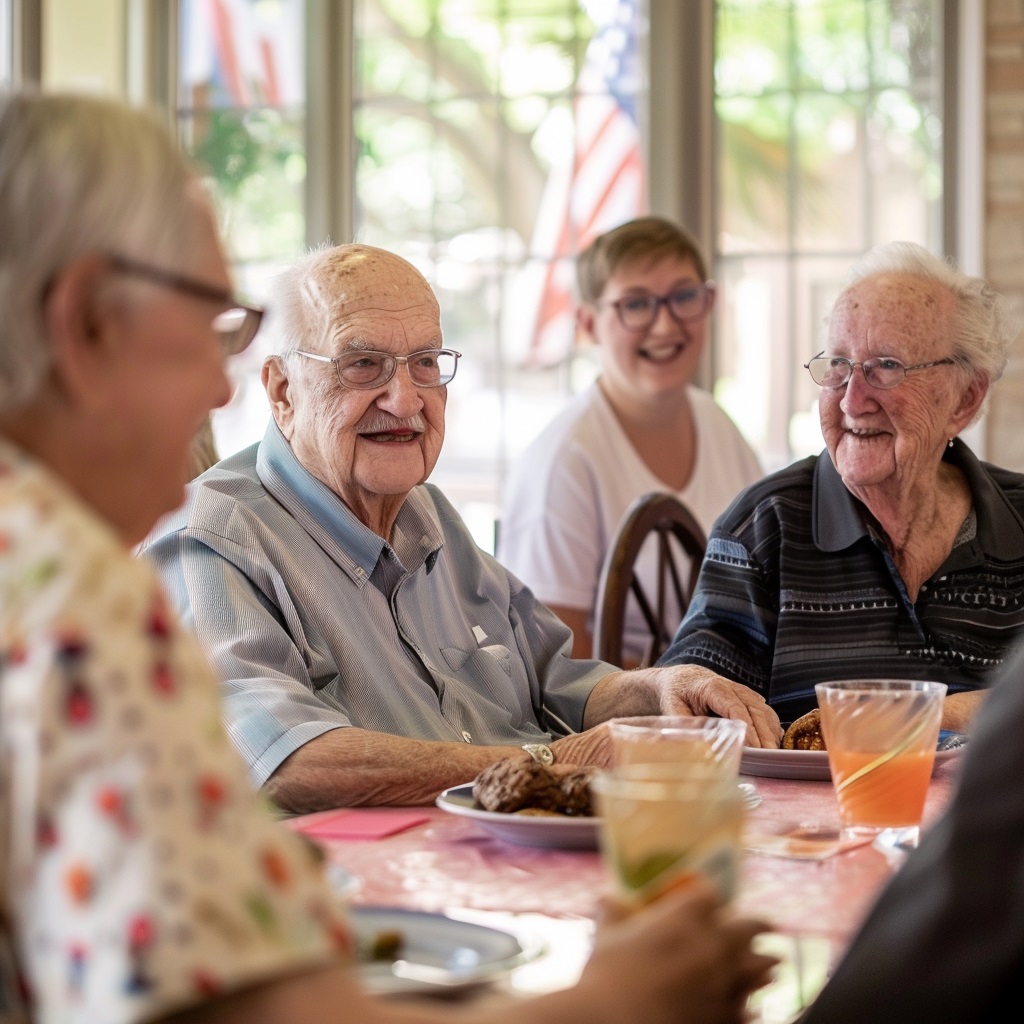
Engaging in puzzles and brain games can significantly boost cognitive health and memory in seniors.
Cognitive Benefits of Memory Exercises
Improved Brain Function
Memory exercises stimulate the brain, leading to better cognitive function. Activities like puzzles and games can boost problem-solving skills and mental agility.
Delayed Onset of Dementia and Alzheimer’s Disease
Doing mental exercises often can help delay dementia and Alzheimer’s. Keeping the brain active promotes the growth of new neural connections.
Enhanced Quality of Life
Memory exercises can significantly improve a senior’s quality of life. Staying mentally active helps maintain independence and enhances social interactions.
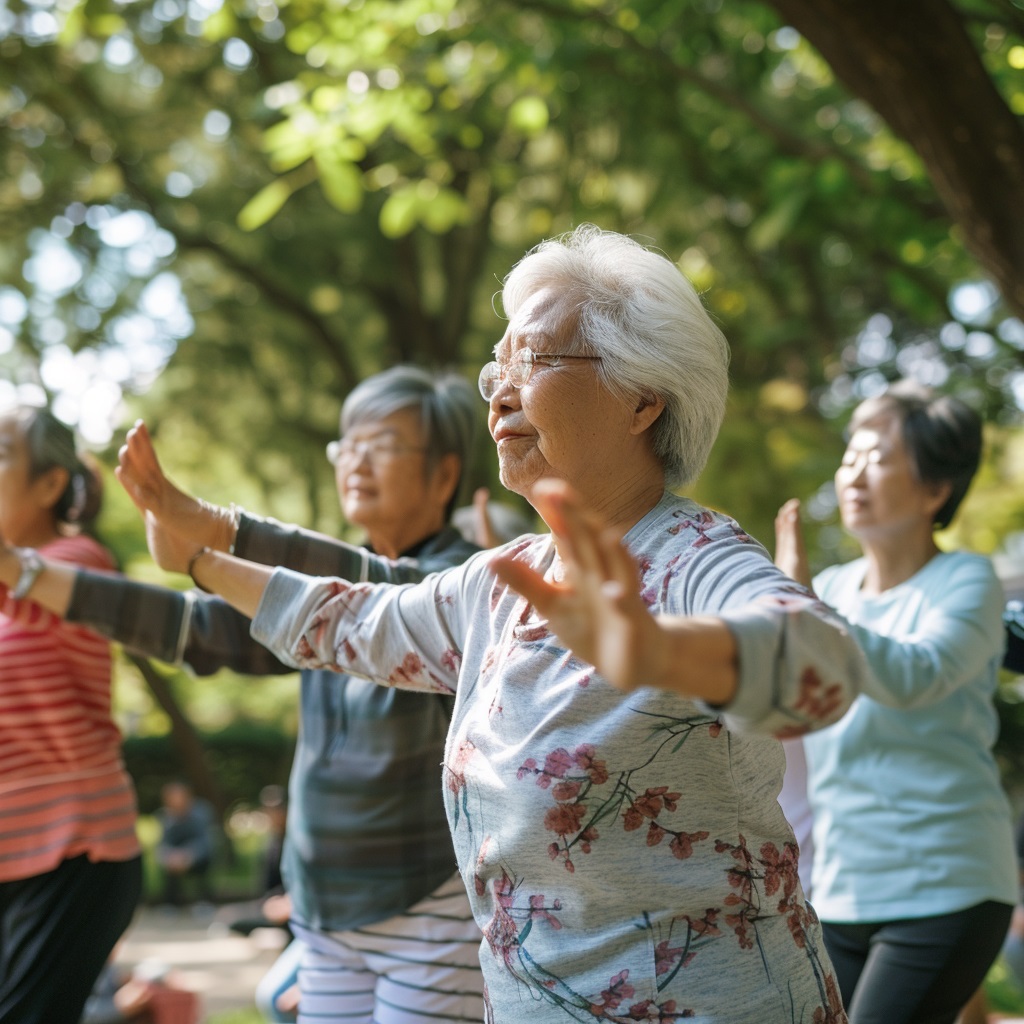
Outdoor exercises like tai chi can enhance memory and overall cognitive health in seniors.
Physical Exercises to Enhance Memory
Importance of Physical Activity for Brain Health
Physical activity is crucial for brain health. It increases blood flow to the brain, providing essential nutrients and oxygen.
Aerobic Exercises and Their Impact on Memory
Aerobic exercises are particularly beneficial. They include:
- Walking
- Swimming
- Dancing
These activities increase heart rate and improve brain function.
Strength Training and Cognitive Benefits
Strength training also supports cognitive health. Lifting weights or using resistance bands can help:
- Improve concentration
- Enhance problem-solving skills
Balance and Coordination Exercises
Balance and coordination exercises, like tai chi and yoga, are excellent for the brain. They improve focus and mental clarity while promoting physical stability.
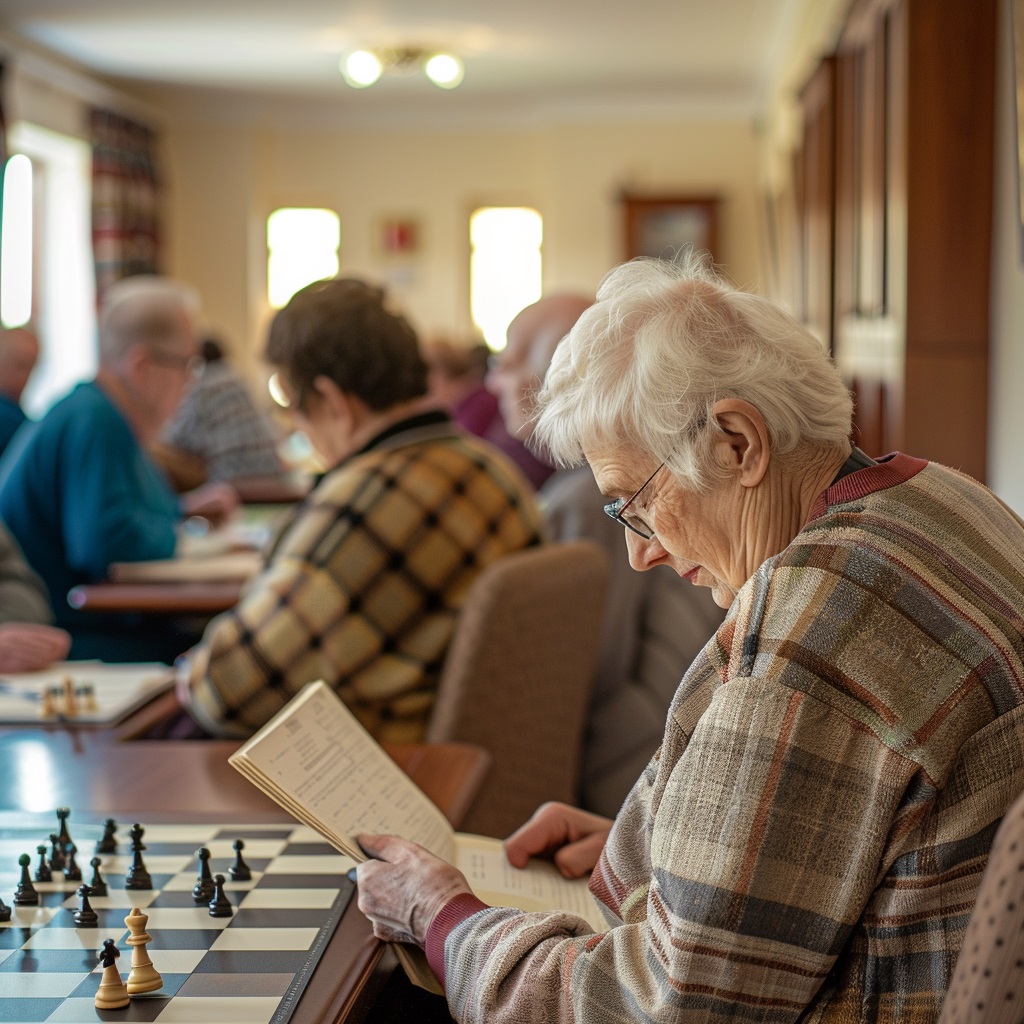
Diverse mental exercises, including reading, crosswords, and chess, help keep the mind sharp and improve cognitive function in seniors.
Mental and Cognitive Exercises
Puzzles and Brain Games
Puzzles and brain games are fun and effective ways to boost memory.
Crossword Puzzles
Crossword puzzles challenge the brain and improve vocabulary. They can be done alone or with friends, making them a social activity too.
Sudoku
Sudoku exercises the brain by requiring logical thinking. It improves concentration and problem-solving skills.
Jigsaw Puzzles
Jigsaw puzzles help with visual-spatial reasoning. Completing a puzzle gives a sense of accomplishment and keeps the mind engaged.
Memory Games
Memory games are explicitly designed to improve recall.
Matching Games
Matching games involve finding pairs of cards. They improve short-term memory and attention to detail.
Sequence Recall Games
Sequence recall games challenge you to remember the order of items. They can be simple, like repeating a sequence of colors, or more complex, like remembering a list of words.
Logic and Strategy Games
Logic and strategy games keep the mind sharp by requiring planning and foresight.
Chess
Chess is a classic game of strategy. It improves critical thinking and problem-solving skills. Playing regularly can help maintain cognitive health.
Checkers
Checkers is simpler than chess but still requires strategic thinking. It’s a great way to exercise the brain in a fun and engaging manner.
Word and Number Games
Word and number games stimulate the brain and improve memory.
Scrabble
Scrabble is a fantastic game for improving vocabulary and spelling. It also encourages strategic thinking.
Number Puzzles
Number puzzles, like Kakuro or KenKen, challenge the brain with math and logic. They help improve numerical skills and concentration.
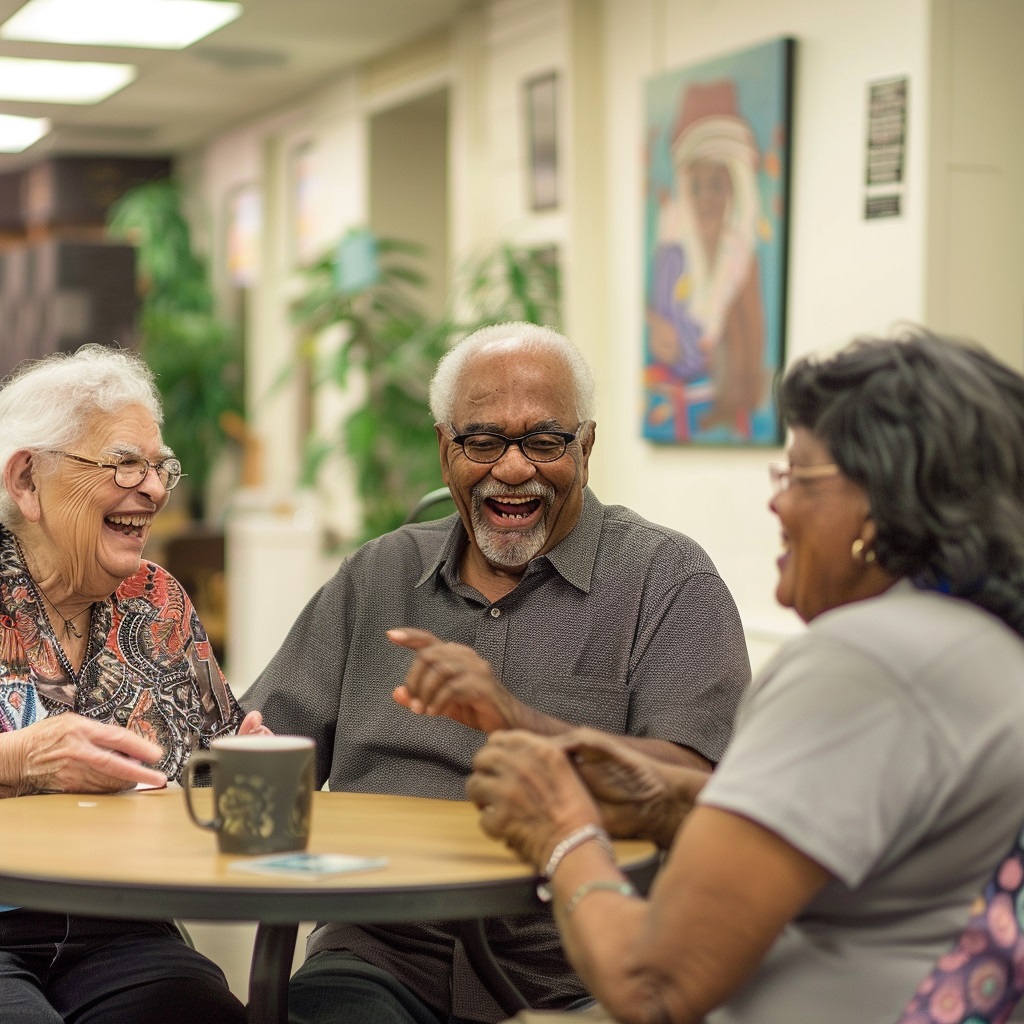
Social activities and engaging conversations play a crucial role in memory improvement and cognitive health for seniors.
Social Activities and Memory Improvement
Benefits of Social Engagement
Staying socially active is crucial for mental health. Interacting with others can reduce stress and improve cognitive function.
Group Activities
Group activities provide opportunities to engage with others and keep the mind active.
Book Clubs
Book clubs encourage reading and discussion. They stimulate the mind and provide social interaction.
Social Clubs
Social clubs offer various activities, from games to outings. They keep seniors engaged and provide a sense of community.
Volunteer Work
Volunteering is a fulfilling way to stay active. It provides a sense of purpose and keeps the mind busy. Helping others can also boost mental health.
Family Interactions and Memory Support
Spending time with family can significantly impact memory. Talking and doing things with loved ones keeps the brain active. It also strengthens bonds.
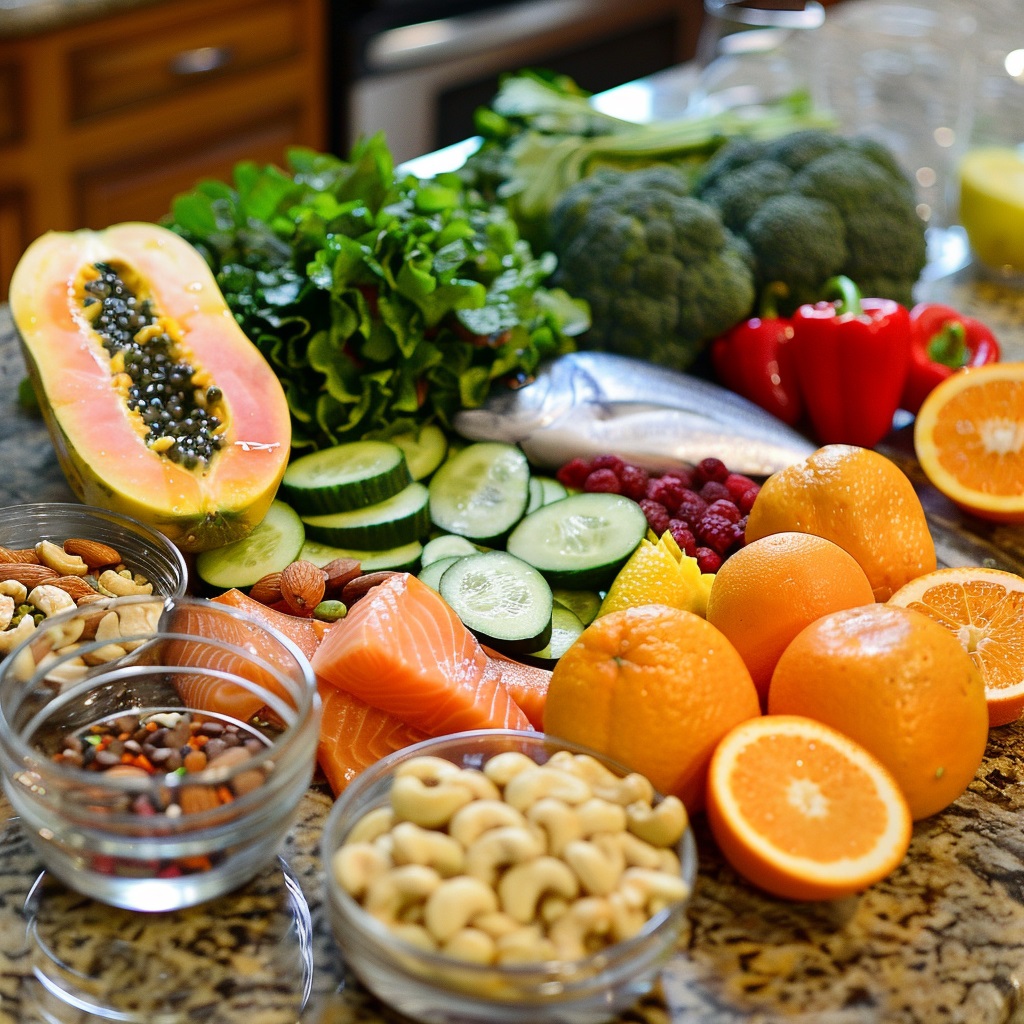
Upholding Standards: Navigating Legal and Ethical Considerations in Care Planning.
Diet and Nutrition for Memory Health
Importance of a Healthy Diet
A healthy diet is essential for brain health. Proper nutrition supports cognitive function and well-being.
Brain-Boosting Foods
Certain foods are particularly beneficial for the brain.
Omega-3 Fatty Acids
Omega-3s in fish like salmon and walnuts are vital for brain health. They support memory and cognitive function.
Antioxidants
Berries, nuts, and leafy greens contain antioxidants that protect the brain from damage. They can also improve memory and reduce the risk of cognitive decline.
Hydration and Cognitive Function
Staying hydrated is crucial for brain function. Dehydration can lead to confusion and memory problems. Drinking enough water throughout the day is essential.
Supplements and Memory Support
Some supplements can support memory. Common ones include:
- Vitamin E: Protects brain cells
- B Vitamins: Support brain health
- Ginkgo Biloba May improve memory
Consult with a healthcare provider before starting any supplements.
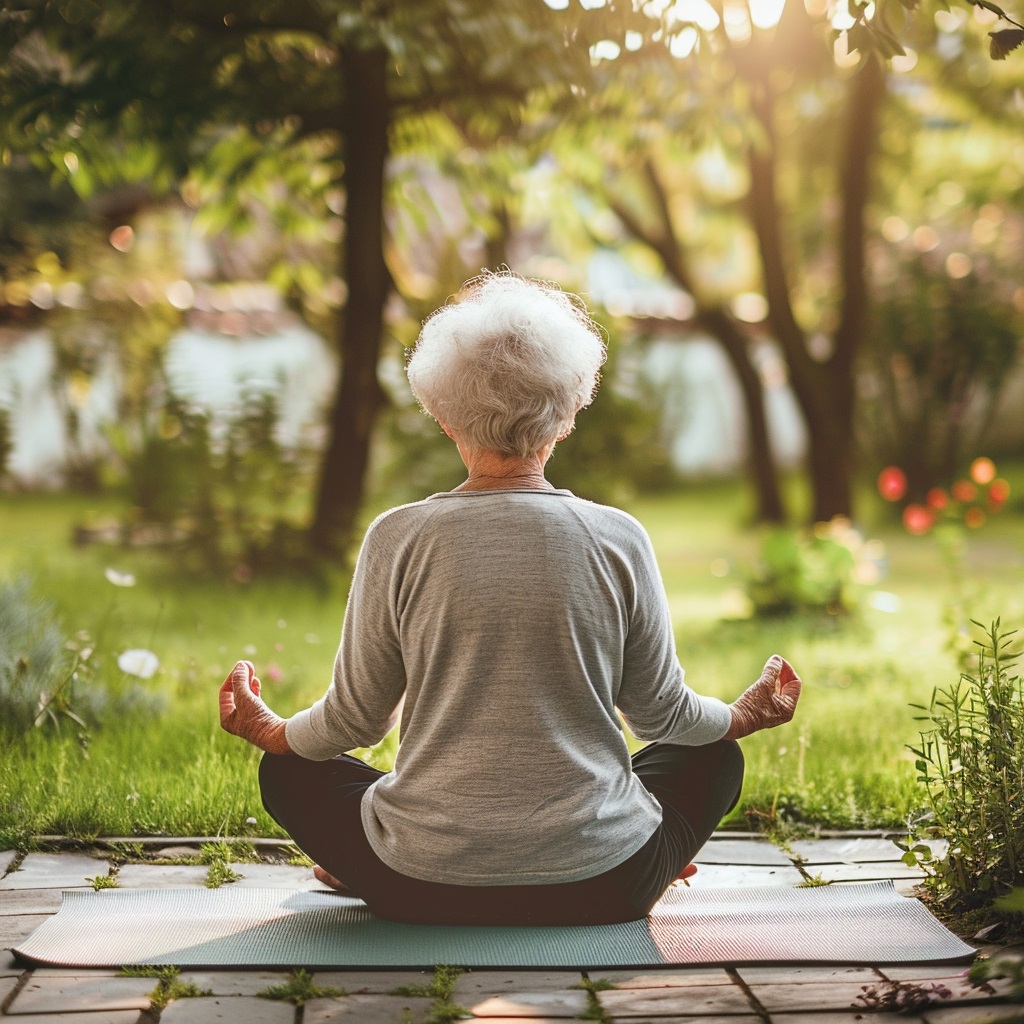
Mindfulness practices, such as meditation, are effective tools for stress reduction and improving cognitive health.
Mindfulness and Stress Reduction
Impact of Stress on Memory
Stress negatively affects memory and cognitive function. Managing stress is crucial for maintaining a healthy mind.
Mindfulness Practices
Mindfulness practices help reduce stress and improve focus.
Meditation
Meditation involves focusing the mind and eliminating distractions. It can improve attention and memory.
Deep Breathing Exercises
Deep breathing exercises are simple and effective. They help reduce stress and improve mental clarity.
Yoga and Its Benefits for Seniors
Yoga combines physical activity with mindfulness. It improves flexibility, strength, and mental focus. Yoga can be adapted for all fitness levels.
Relaxation Techniques
Relaxation techniques help manage stress and improve memory.
Progressive Muscle Relaxation
Progressive muscle relaxation involves tensing and then relaxing each muscle group. It helps reduce physical tension and mental stress.
Guided Imagery
Guided imagery involves visualizing calming images. It helps reduce stress and improve focus.

Mindfulness practices, such as meditation, are effective tools for stress reduction and improving cognitive health.
Professional Support and Resources
Cognitive Therapy
Cognitive therapy can be very beneficial for seniors experiencing memory issues. Therapists use exercises and strategies to target. They work with individuals to improve memory and thinking.
Memory Clinics and Specialists
Memory clinics offer specialized care for those with significant memory concerns. They provide comprehensive assessments and personalized treatment plans. Seeing a specialist can help diagnose and manage conditions. These include dementia and Alzheimer’s.
Support Groups for Seniors
Support groups provide a community for seniors experiencing similar memory issues. They offer emotional support, practical advice, and a sense of belonging. Connecting with others can reduce feelings of isolation and improve mental well-being.
Resources and Programs Available
Many resources and programs are available to help seniors improve their memory. Local community centers and senior centers offer classes, workshops, and activities. They focus on cognitive health. You can also find these offerings on online platforms.
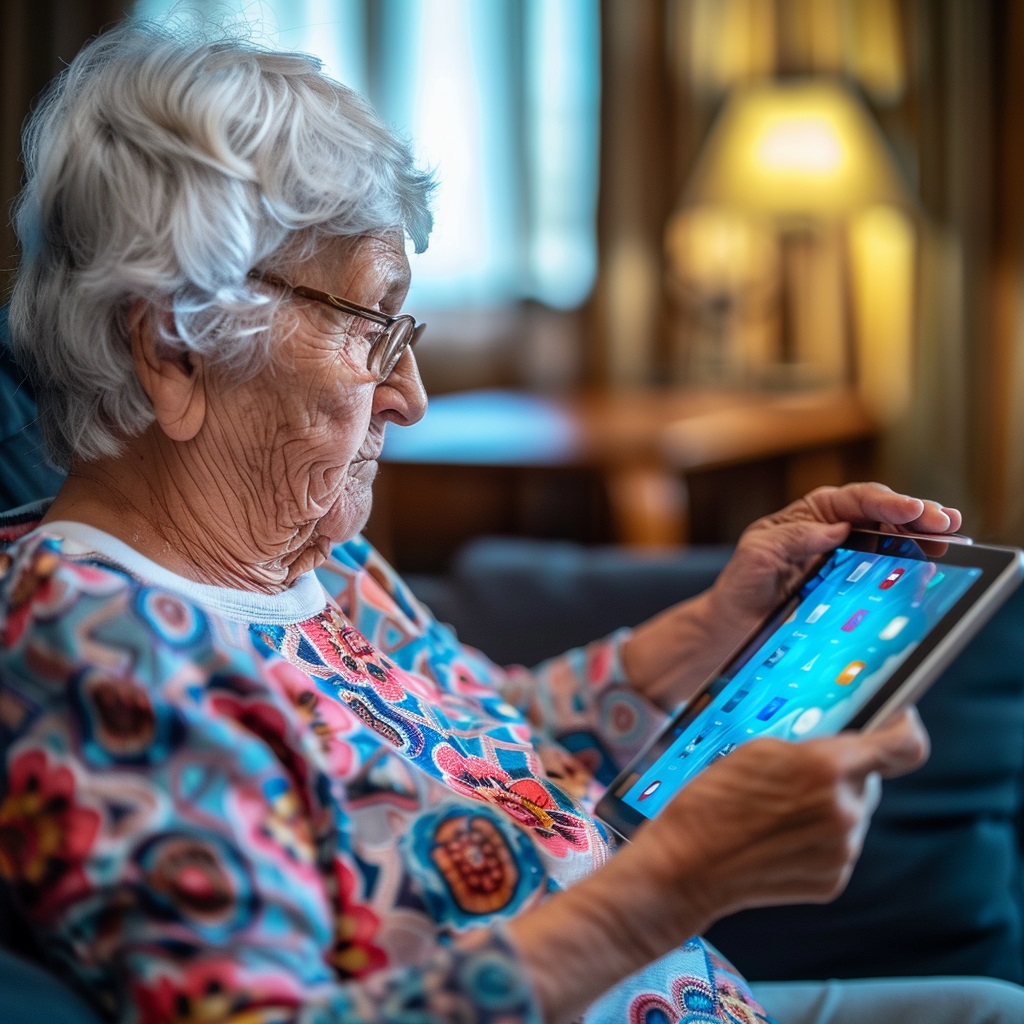
Technological aids like tablets and apps provide effective tools for memory enhancement and cognitive support.
Technological Aids for Memory Enhancement
Use of Apps and Digital Tools
Technology can be a fantastic ally in boosting memory. Many apps and digital tools are designed to help seniors keep their minds sharp.
Brain Training Programs
Brain training programs are available on smartphones and tablets. They include games and exercises to improve memory, attention, and problem-solving skills. Popular apps include Lumosity and BrainHQ.
Online Memory Games
Online memory games can be fun and engaging. Websites like Mind Games and Peak offer many brain-challenging games. The games improve cognitive function.
Smart Devices and Memory Aids
Smart devices can help seniors manage their daily routines and enhance memory.
Reminders and Alarms
Smartphones and tablets can remind seniors of tasks. These tasks include taking medication, attending appointments, and other daily activities. Alarms and reminders can be set up easily.
Voice-Activated Assistants
Devices like Amazon Echo and Google Home can provide reminders. They can also answer questions and play memory games. They are user-friendly and can be an excellent support for seniors.
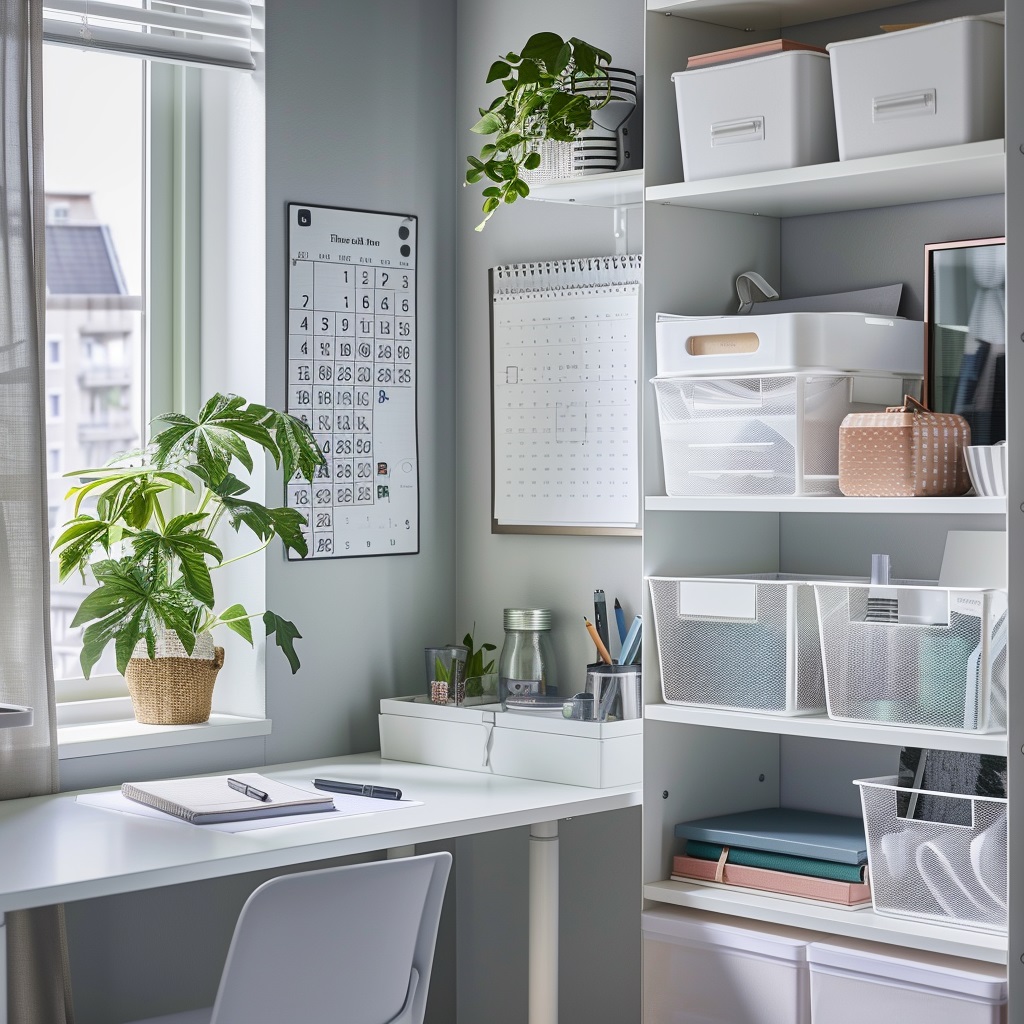
An organized and clutter-free environment with helpful labels and reminders can enhance memory and cognitive function.
Creating a Memory-Enhancing Environment
Organizing the Living Space
An organized living space can make a big difference in supporting memory.
Decluttering
Keeping the living area clutter-free reduces distractions and makes it easier to find essential items. Simple organizing tips include:
- Keeping frequently used items in designated places
- Reducing the number of unnecessary objects
- Using storage solutions like bins and shelves
Use of Labels and Reminders
Labeling items and areas can help seniors remember where things are. Sticky notes, whiteboards, and labels on drawers and cabinets can be handy.
Creating a Routine
A daily routine helps reinforce memory by creating a sense of structure. Regular activities simultaneously each day make it easier to remember tasks and events.
Reducing Distractions
Minimizing distractions can help improve focus and memory. This includes:
- Turning off the TV during conversations or tasks
- Keeping a quiet environment during important activities
- Using noise-canceling devices if needed

Using a daily planner and keeping a routine can provide practical support for improving memory in daily life.
Practical Tips for Daily Memory Support
Developing a Daily Schedule
A consistent daily schedule can greatly aid memory. Writing down daily tasks and sticking to a routine helps reinforce memory and reduce stress.
Use of Journals and Notebooks
Keeping a journal or notebook can help seniors remember important information. They can jot down appointments, to-do lists, and personal reflections. This practice also provides a written record to refer back to when needed.
Setting Reminders and Alarms
Reminders and alarms are a simple yet effective way to stay on track. Phones, tablets, and smart home devices can be programmed to alert seniors to important tasks and events.
Engaging in Lifelong Learning
Lifelong learning keeps the brain active and engaged. It’s never too late to learn something new.
Taking Classes
Many community colleges and senior centers offer classes specifically for older adults. Topics range from history and literature to technology and art.
Learning New Skills
Learning new skills, like playing a musical instrument or speaking a new language, can significantly boost cognitive function. These activities challenge the brain and keep it stimulated.
Regular memory exercises can significantly improve the lives of seniors. By incorporating physical, mental, and social activities into daily routines, seniors can boost their cognitive health and overall well-being. Simple changes in diet, mindfulness practices, and technology can further support memory enhancement. Remember, there is always time to start. Small, consistent efforts can lead to big improvements in memory and quality of life. Stay engaged, stay active, and enjoy the journey of lifelong learning.
What are some simple daily activities that can help improve memory?
Simple daily activities can help. These activities include reading, doing puzzles, talking to people, and practicing mindfulness. They can improve memory. Establishing a routine and keeping a journal can also be beneficial.
How can diet impact memory and cognitive function?
A healthy diet provides essential nutrients that support brain health. Foods have omega-3, antioxidants, and vitamins. They can boost memory and thinking. Staying hydrated and considering supplements like B vitamins can also help.
Are there specific exercises that are better for brain health?
Both physical and mental exercises are essential for brain health. Aerobic exercises, like walking and swimming, improve blood flow to the brain. Brain games and puzzles enhance thinking. Strength training and balance exercises also contribute to brain health.
How does social interaction benefit cognitive health?
Socializing keeps the brain engaged. It also lowers the risk of cognitive decline. It provides mental stimulation. It reduces stress and improves mood. These are all good for memory and overall thinking.
Can stress affect memory, and how can it be managed?
Yes, stress can negatively impact memory and cognitive function. You can manage it through mindfulness practices. These include meditation, deep breathing, and physical activities like yoga. Creating a relaxing environment. Doing fun activities can also help reduce stress.
What role do apps and digital tools play in memory enhancement?
Apps and digital tools offer easy ways to do brain-training exercises. They also offer memory games. They provide structured programs tailored to individual needs. This makes it easy to add memory exercises to daily routines.
How can creating a memory-enhancing environment at home help?
An organized, clutter-free place reduces distractions. It also makes it easier to find important items. This supports better memory. Using labels, setting reminders, and keeping a routine can also boost memory.
What kind of professional support is available for memory improvement?
Professionals can provide cognitive therapy and memory clinics. They can also give comprehensive assessments and personalized treatment plans. Support groups offer emotional support. They also give practical advice. They help seniors manage memory issues well.
Aerobic Exercises: Physical activities that increase the heart rate and improve oxygen consumption. Examples include walking, swimming, and dancing. These exercises are beneficial for overall health and brain function.
Antioxidants: Substances that protect cells from damage caused by free radicals. Common antioxidants include vitamins C and E in foods like berries, nuts, and leafy greens.
Brain Training Programs: Digital applications and tools designed to improve cognitive functions such as memory, attention, and problem-solving skills. Examples include Lumosity and BrainHQ.
Cognitive Health: The ability to think, learn, and remember. It involves various mental processes including memory, attention, and problem-solving.
Cognitive Therapy: A type of therapy that helps individuals improve memory and cognitive function through targeted exercises and strategies. It is often used to help those with memory impairments.
Decluttering: The process of removing unnecessary items from the living space to reduce distractions and make it easier to find essential objects. This can enhance focus and memory.
Dementia: A group of symptoms affecting memory, thinking, and social abilities severely enough to interfere with daily life. Alzheimer’s disease is the most common cause of dementia.
Deep Breathing Exercises: Techniques that involve taking slow, deep breaths to reduce stress and improve mental clarity. These exercises can help calm the mind and body.
Guided Imagery: A relaxation technique that visualizes calming images or scenarios to reduce stress and improve focus. It is often used in stress management practices.
Hydration: The process of maintaining adequate fluid balance in the body. Proper hydration is essential for cognitive function and overall health.
Jigsaw Puzzles: A puzzle of numerous pieces must be assembled to form a complete picture. They help with visual-spatial reasoning and memory.
Long-term Memory: The ability to store information over extended periods. It includes memories from childhood, essential events, and accumulated knowledge.
Matching Games: Games that involve finding pairs of cards or items. They are used to improve short-term memory and attention to detail.
Meditation: A practice where an individual uses techniques like focusing the mind on a particular object, thought, or activity to train attention and awareness, and achieve a mentally clear and emotionally calm state.
Memory Clinics: Specialized healthcare facilities that provide comprehensive assessments and treatments for individuals with memory problems. They offer personalized care plans for conditions like dementia.
Mild Cognitive Impairment (MCI): A condition characterized by slight but noticeable and measurable decline in cognitive abilities, including memory and thinking skills. It is more serious than regular age-related changes but not severe enough to be classified as dementia.
Mindfulness: A mental practice that involves focusing on the present moment while calmly acknowledging and accepting one’s feelings, thoughts, and bodily sensations. It is used to reduce stress and improve mental clarity.
Omega-3 Fatty Acids: Essential fats in foods like fish, flaxseeds, and walnuts. They are crucial for brain health and can improve memory and cognitive function.
Progressive Muscle Relaxation: A technique that involves tensing and relaxing each muscle group. It helps reduce physical tension and mental stress.
Sequence Recall Games: Memory games that challenge individuals to remember and repeat sequences of items, such as colors, numbers, or words. They help improve short-term memory and attention.
Short-term Memory: The capacity for holding a small amount of information in an active, readily available state for a short period. It is crucial for daily tasks and immediate recall.
Smart Devices: Electronic gadgets like smartphones, tablets, and smart home assistants (e.g., Amazon Echo, Google Home) that can provide reminders, play memory games, and assist with daily tasks.
Social Clubs: Groups that provide opportunities for social interaction and activities. They help seniors stay engaged and maintain cognitive function through social engagement.
Strength Training: Physical exercises that improve muscular strength and endurance. This exercise can also enhance cognitive function by promoting overall physical health.
Sudoku: A number puzzle game that involves filling a 9×9 grid so that each column, row, and 3×3 section contain all digits from 1 to 9. It improves logical thinking and concentration.
Support Groups: Groups that provide emotional support and practical advice to individuals with similar experiences, such as memory issues. They offer a sense of community and shared understanding.
Tai Chi: A form of exercise that involves slow, controlled movements and deep breathing. It improves balance, coordination, and cognitive function.
Working Memory: The part of short-term memory concerned with immediate conscious perceptual and linguistic processing. It is used for tasks such as reasoning and decision-making.
Yoga: A practice that combines physical postures, breathing exercises, and meditation. It improves flexibility, strength, and mental focus, and reduces stress.
Are you a resident of New York State with an elderly loved one? Imagine getting paid to provide the care they deserve. At Pella Care CDPAS, we make it possible for families like yours to be compensated for caregiving.
Take the first step towards a rewarding opportunity. Call us today at 718-908-2273 (or 718-908-CARE) for more information. Let us help you care for your loved one while receiving your support. Don’t wait—reach out now and discover how to become a paid caregiver.
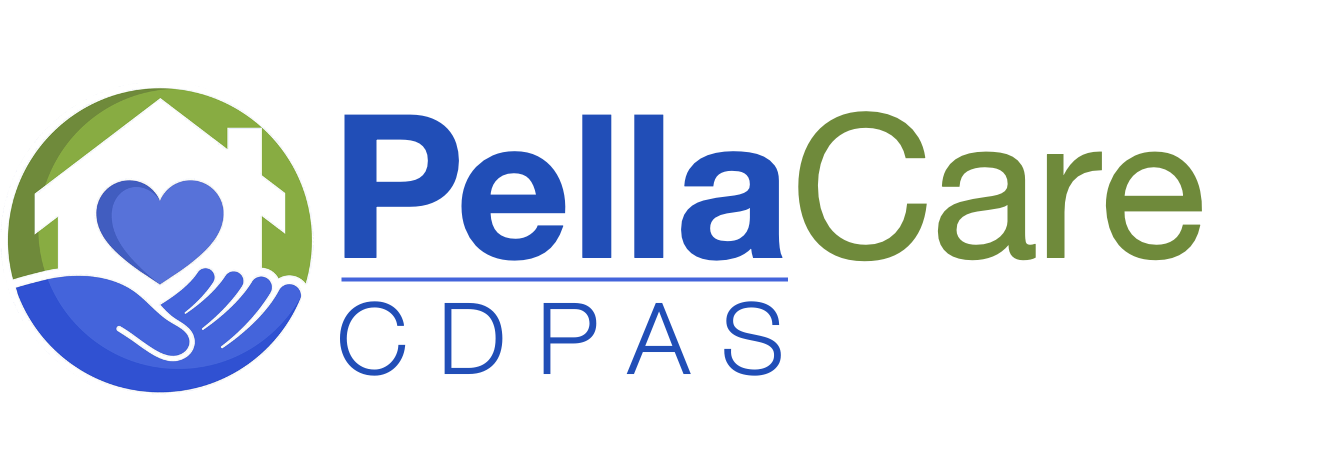
Recent Comments